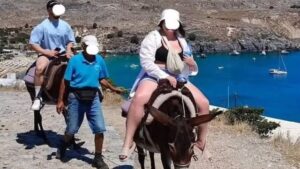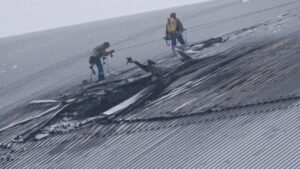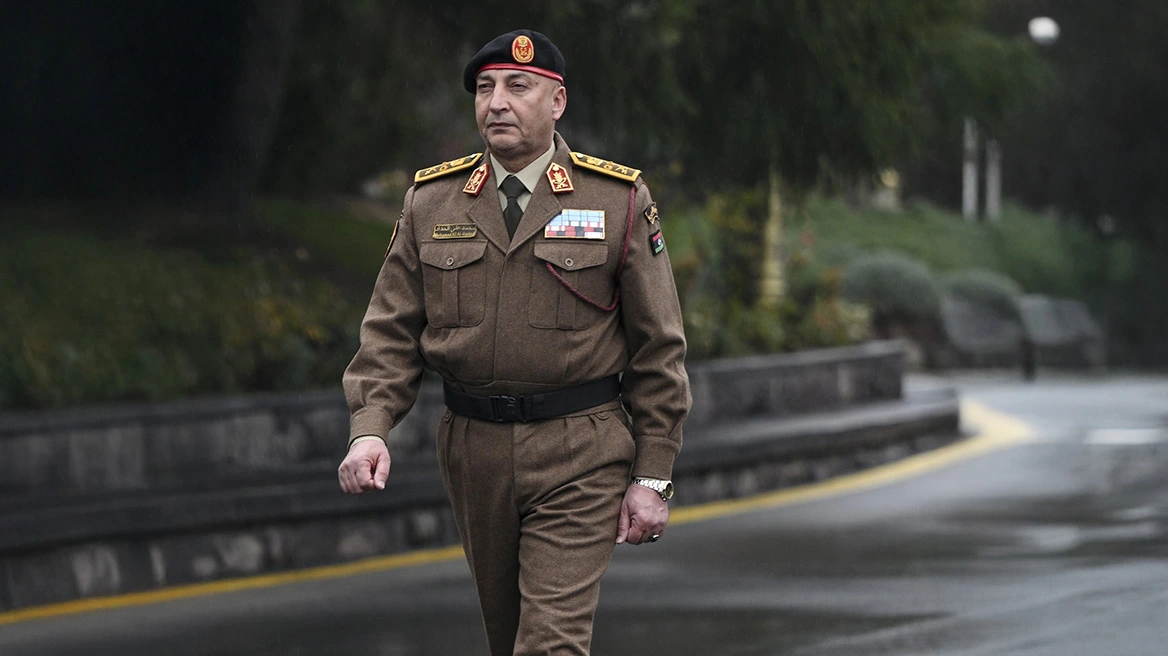The practice of using donkeys to transport tourists to places in Rhodes is referred to in an extensive article in the British newspaper DailyMail which hosts calls from animal welfare organisations to stop their abuse.
In Greece, donkeys have historically been used as a method of transporting goods, as well as a main means of personal transportation on the narrow and steep roads of the islands.
As reported, dozens of donkeys on the idyllic island of Rhodes are suffering at the altar of the tourism industry, as they are used as “taxis” to carry overweight holidaymakers up steep slopes. Activists are sounding the alarm and sharing harrowing images of the conditions under which the unfortunate animals live. Local animal activist group Liber Life Rhodes has been campaigning on the welfare of donkeys on Lindos for the past three years and on “all the animal abuse that goes on on the island of Rhodes.”
Each year, millions of tourists flock to Greece to enjoy its sunny beaches and ancient monuments. With the booming tourist industry, donkeys have become a popular attraction, often used to carry people and heavy luggage.
The town of Lindos in Rhodes, which is built around the ancient Acropolis atop a mountain, relies on the four-legged work animals to transport holidaymakers, who may prefer to reach the island’s historic sites by “Lindos taxis.
.
Presented as idyllic, the legendary Greek taxis with donkeys often appear in travel brochures and postcards, but there is a dark reality to the activity that is noted on many tourists’ lists.
Images published by the Daily Mail from Liber Life show donkeys being forced to carry obese tourists up steep slopes.
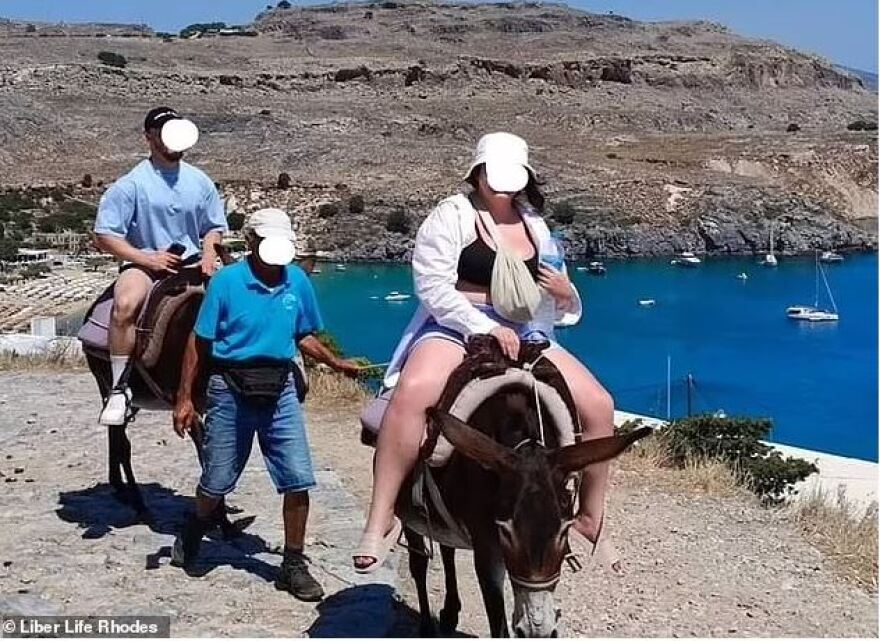
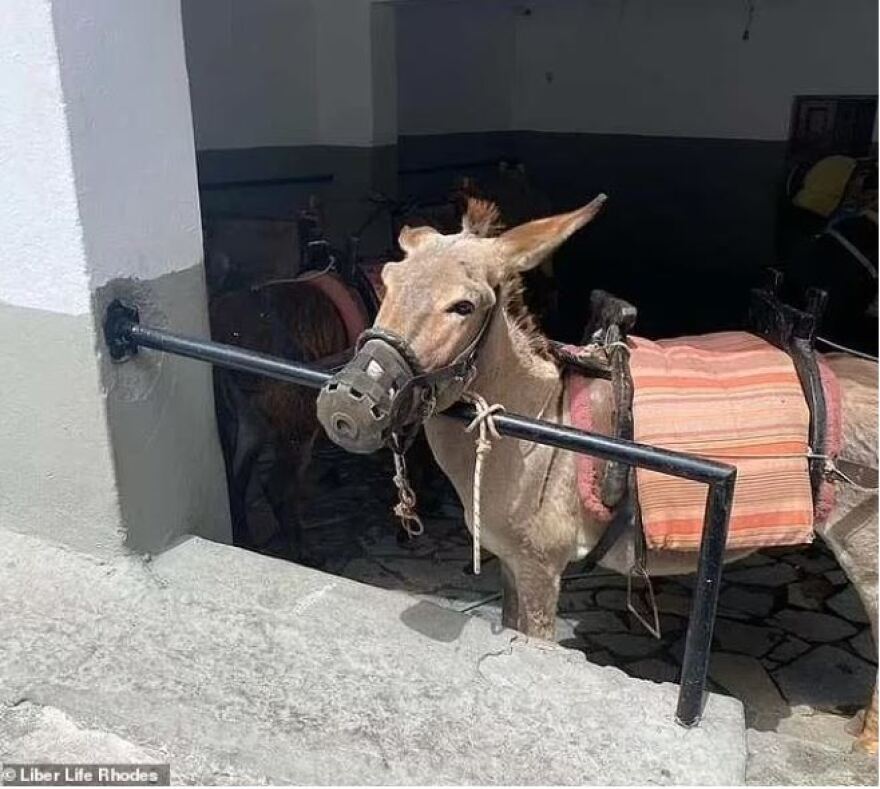
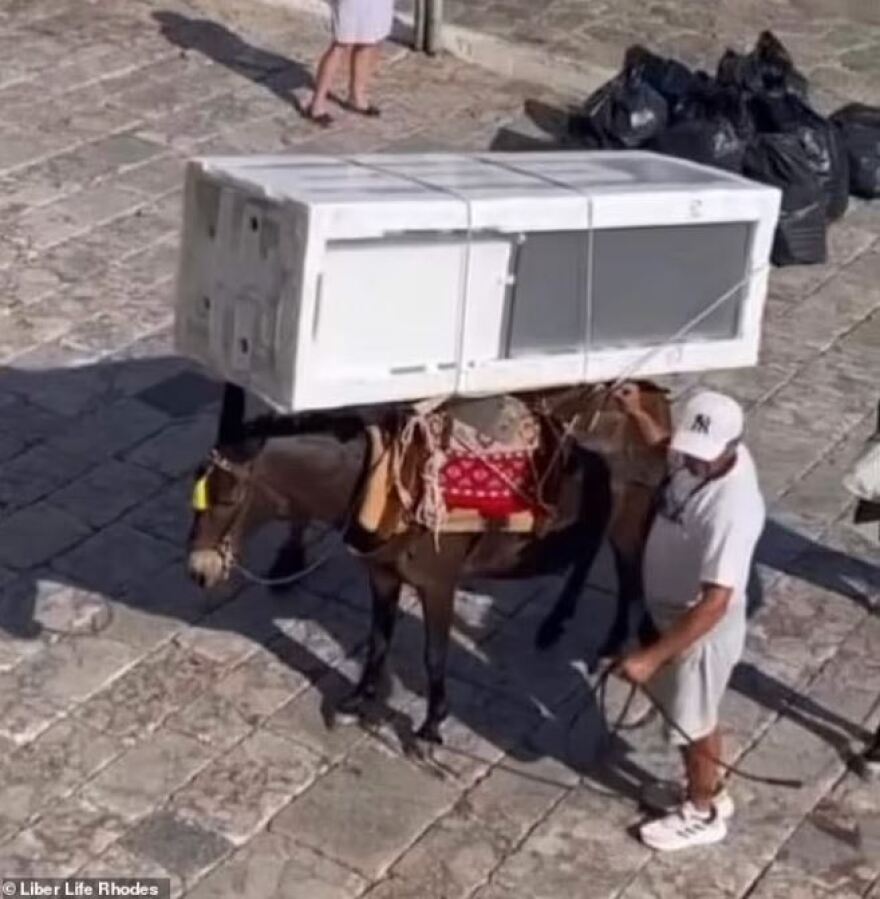
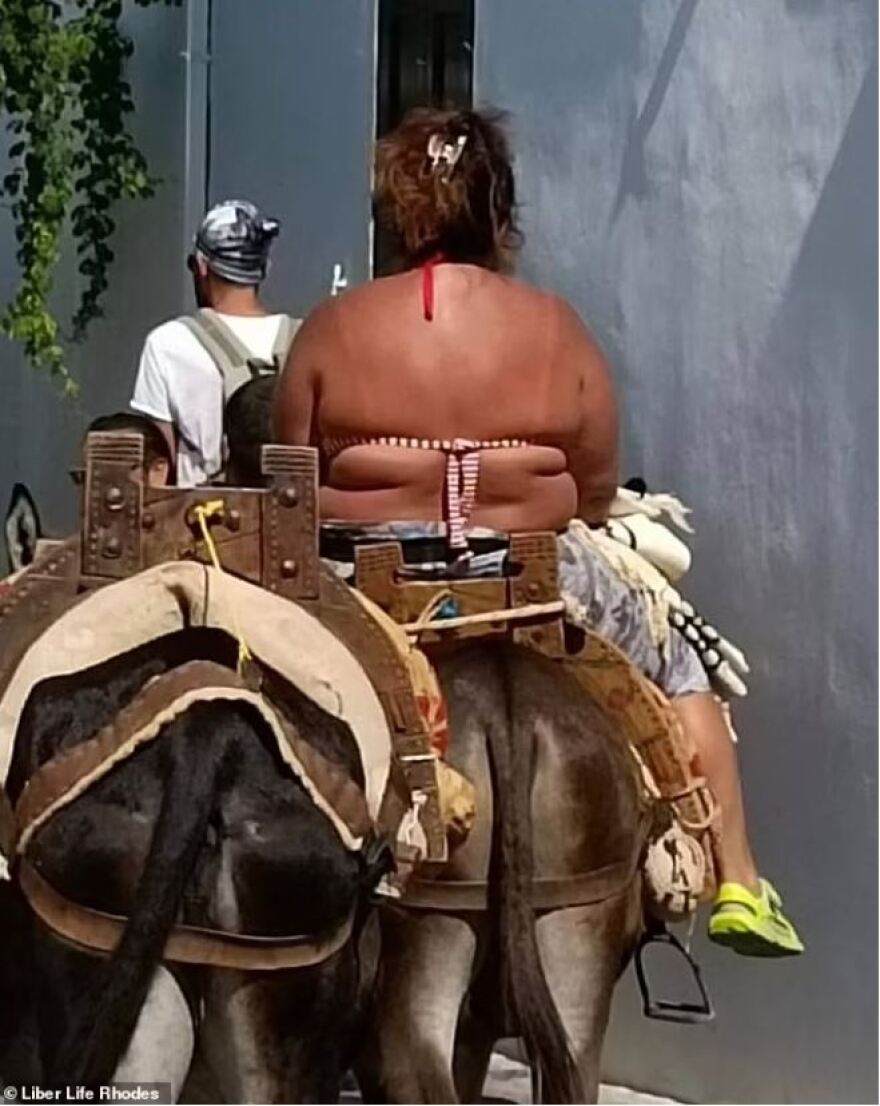

Other images show one animal carrying heavy logs, while another donkey appears to be carrying a refrigerator strapped to its back.
Speaking to the Mail Online about donkey tourism on the island, Alexandra Passaro from Liber Life spoke about the conditions under which some of Lindos’ donkeys live, explaining that they are forced to wear “heavy” saddles for hours every day in temperatures of up to 42 degrees Celsius. He also said that the best solution would be“not to use them for transportation at all,” arguing that many people, including locals and tourists“see the animals as an object and think it is okay to use them for entertainment.”
A video from 2020 sparked outrage as it showed Lindos donkeys under the scorching sun on a day when the temperature was 34 degrees Celsius, with no trace of water in their buckets.
The video has forced locals to pay more attention to the treatment of donkeys on the island.
Some of the donkey owners belong to a local association, with which Alexandra Passaro said she and her team are “constantly” in talks, offering advice on how to improve the donkeys’ welfare and ensure they are given the best possible care. Through these activities Liber Life monitors any injuries to the animals and has installed thermometers near donkey stations so owners know when it is too hot for the donkeys to work. While the “Lindos taxis” are a major tourist attraction on the island of Rhodes, several holidaymakers have joined in condemning their mistreatment.
In a Facebook group called Discover Rhodes, in which people share their experiences of the island, comments about the welfare of the donkeys are plentiful.
One user wrote: “Poor donkeys in Lindos. All crammed into the donkey station loaded and waiting for lazy overweight tourists to haul them up to the Acropolis. Very cruel. They ruined my day. God help them.” Another commented: “In Lindos right now. Beautiful place. The only thing that disappoints me is the donkeys. It’s not right.”
The only thing that makes me happy is the donkeys.
The only thing that matters is that the only thing that matters is that the only thing that matters is that they are not.
Others expressed concerns about the heat and how it can affect the animals. One post said:“How do people sleep at night putting their kids on donkeys for fun in this heat? If it’s too hot for your kids to walk up the hill. it’s probably too hot for the donkey.”
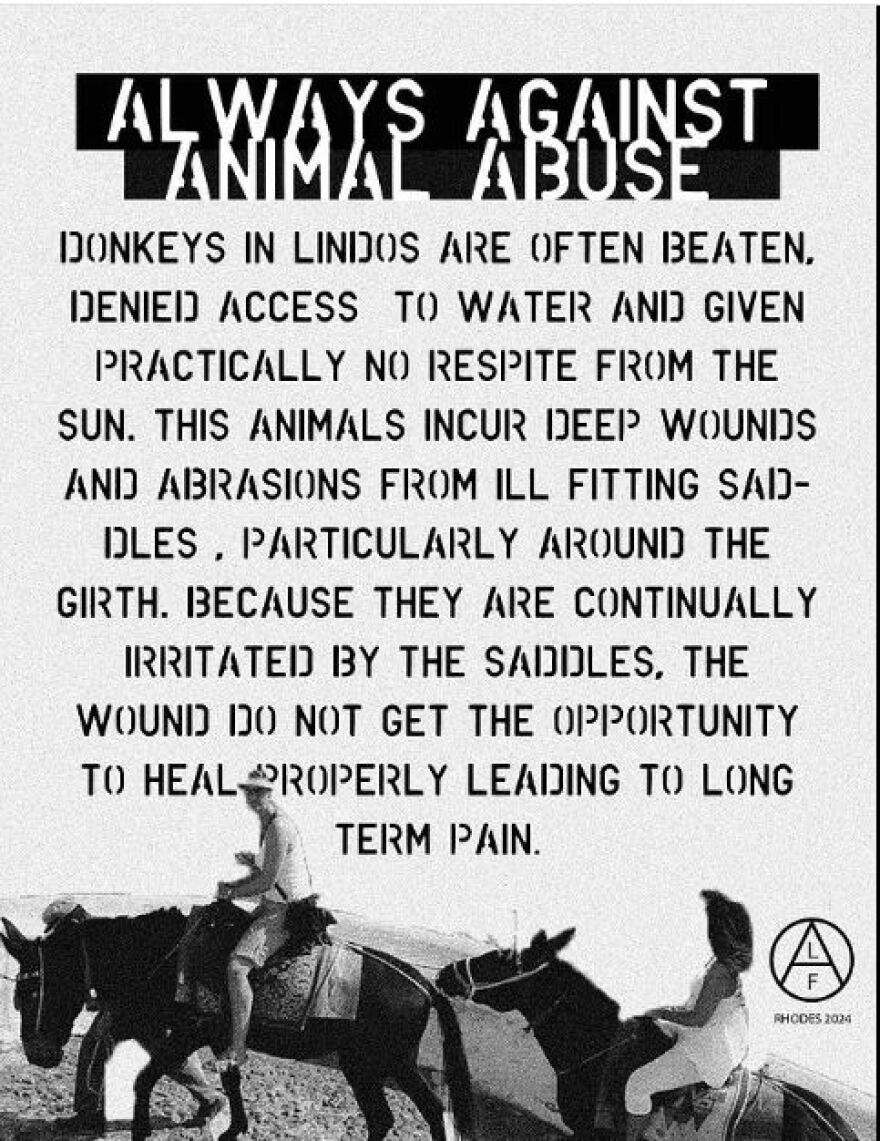
While locals who own and care for the donkeys have been accused of mistreating them, other people who have visited them have said that “the responsibility is on the tourists”who ride the animals in the first place.
Alexandra Passaro acknowledged that many tourists “are not happy with what’s going on”and have been known to “make a big deal of it, confronting owners and making Facebook posts about the abuse they’ve seen. “But the donkeys exist in these conditions because it’s tourists who ride them all day every summer,”he said.
The group has spread its message across Lindos, putting up posters in English so tourists can be made aware of the dark reality of donkey tourism.
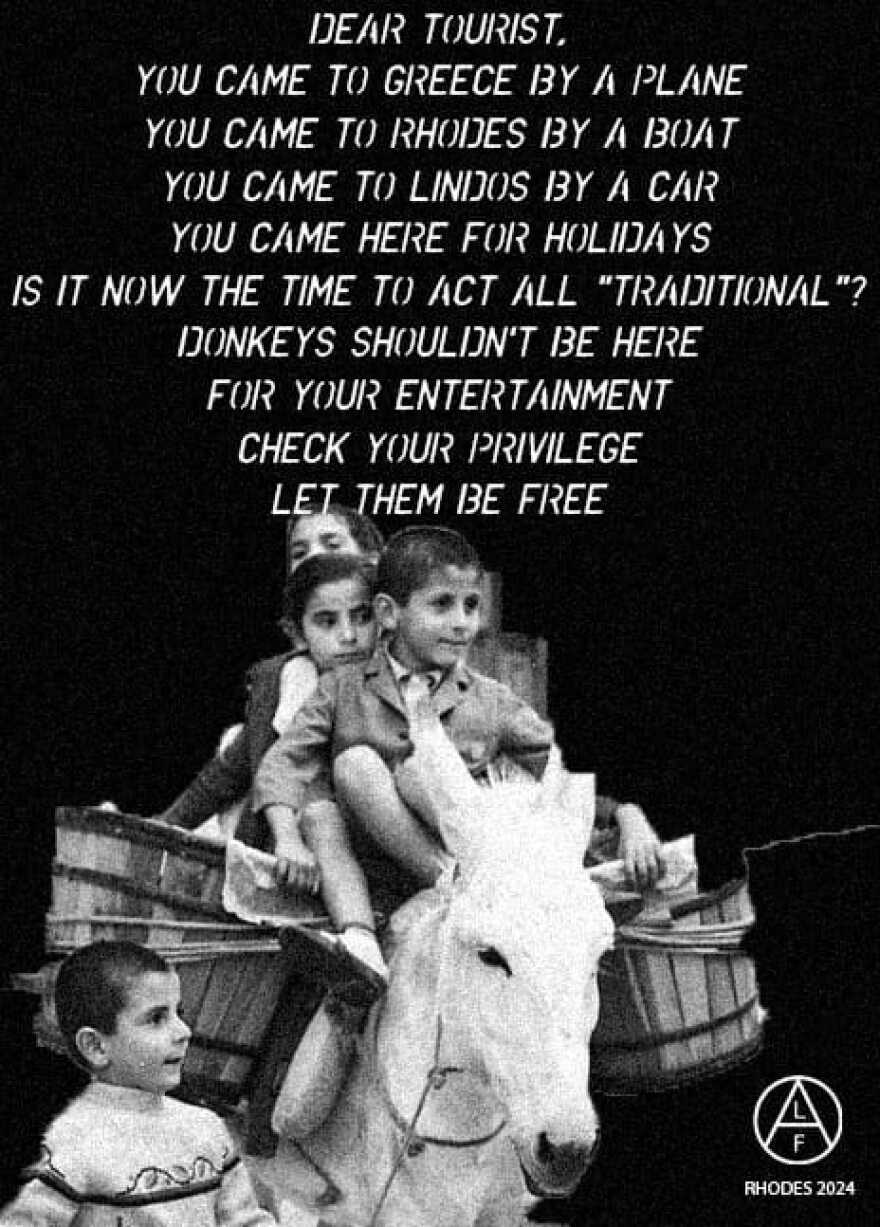
“Dear tourist, you came to Greece by plane, you came to Greece by boat, you came to Lindos by car, you came here on holiday. Isn’t now the time for you all to behave traditionally? Donkeys should not be here for your entertainment. Let them be free.” Another pamphlet reads:“We are not free until everyone is free.”
Ask me anything
Explore related questions
